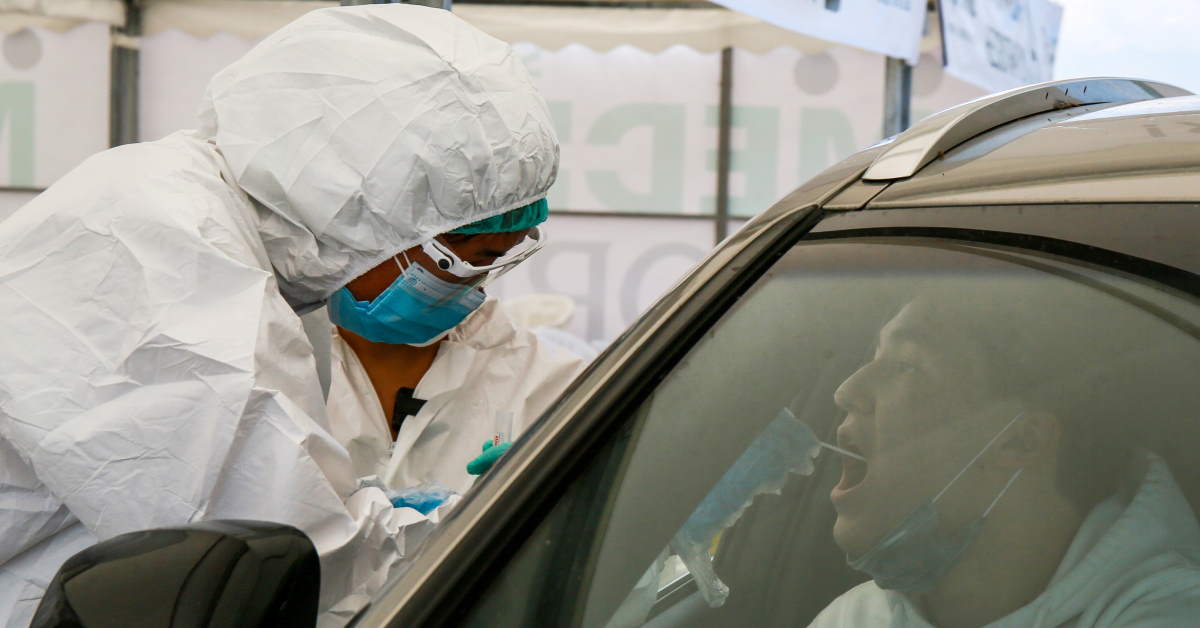In an alert for Chinese citizens posted on the embassy's website Thursday, Beijing warned of a disease with "a mortality rate far higher than COVID-19" – an assertion that was later removed from the statement.
The statement also said the pneumonia outbreak had caused 1,772 deaths in the first half of 2020 and "628 in June alone".
The statement originally referred to "Kazakhstan pneumonia" but this wording was later changed to "non-COVID pneumonia".
The embassy mentioned three provincial cities – Atyrau, Aktobe and Shymkent – saying the disease has taken hold there and Chinese nationals are among those who have died from it.
Kazakhstan denied Friday the claim by China's embassy that a pneumonia outbreak more deadly than the novel coronavirus is rampaging through the Central Asian country.
The Kazakh health ministry is studying the disease and comparing it to COVID-19, the embassy said.
Kazakhstan's health ministry said Friday the claim published by "Chinese media" did not "correspond to reality", without mentioning the embassy.
The ministry acknowledged it had classified as pneumonia cases where COVID-19 symptoms were present but the patients tested negative, arguing that this falls within World Health Organization (WHO) guidelines.
Asked about the embassy's statement, Chinese foreign ministry spokesman Zhao Lijian told journalists China "also wishes to find out more information".
China, he said, "hopes to continue to work together with Kazakhstan to fight the epidemic and safeguard both countries' public health and safety".
The WHO appeared to support Kazakhstan's position in a statement sent to the media by a spokesman Friday.
The spokesman cited a 10 July statement by the Central Asian country's health ministry that said the ministry was classifying pneumonia cases according to WHO codes.
"This suggests (the pneumonia cases) do not classify as emerging unknown disease. We are in the process of verifying with the ministry the COVID-19 confirmed cases," the statement added.
The WHO website refers to one such code "U07.2 COVID-19, virus not identified"
This code is used when there is "clinical or epidemiological diagnosis of COVID-19 (but) where laboratory confirmation is inconclusive or not available."
Testing Troubles
Since lockdown restrictions were lifted in May, the oil-rich country bordering China and Russia has seen virus cases grow more than fivefold, to nearly 55,000 cases.
Kazakhstan and other Central Asian countries have recently been accused of underplaying the scale of their second wave of cases by classifying many as pneumonia.
Lack of good quality testing kits is widely cited as a reason for underreporting.
In an article covering the health ministry's rebuttal, pro-government website Tengri News cited a doctor as saying the surge in pneumonia cases was "a manifestation of the coronavirus".
So-called "false negative tests" have proved a regular feature of coronavirus battles in the Central Asian region, where doctors have indicated the poor quality of some of the tests being used.
In neighbouring Kyrgyzstan, Health Minister Sabyrzhan Abdykarimov and one of his deputies have both been hospitalised with coronavirus symptoms but only the deputy minister tested positive, the health ministry said on Friday.
Abdykarimov tested negative.
Last month, the foreign ministry of Turkmenistan, another Central Asian country, dismissed as "fake news" a United States (US) embassy health alert warning Americans of potential coronavirus cases in the country.
Turkmenistan is one of the few countries yet to declare a single coronavirus case.
The US embassy said it had "received reports of local citizens with symptoms consistent with COVID-19 undergoing COVID-19 testing and being placed in quarantine in infectious diseases hospitals for up to 14 days". – AFP
